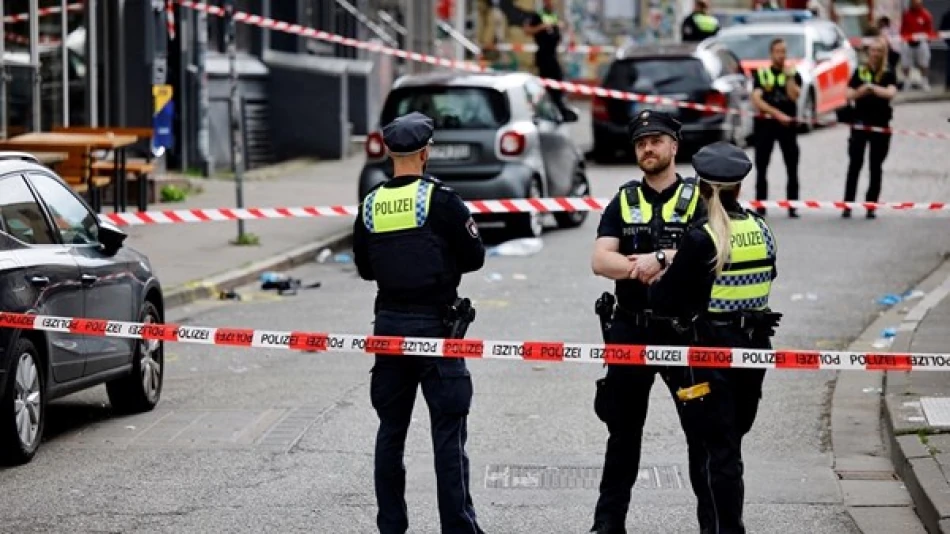
Authorities Crack Down on Extremist Right-Wing Plot in Germany
Germany Arrests Three More Suspects in Far-Right Plot to Overthrow Government
German authorities arrested three additional suspects Thursday in connection with a far-right extremist network that allegedly planned to violently seize power and install an aristocrat as head of state. The arrests underscore the persistent threat of domestic terrorism in Europe's largest democracy, where far-right movements continue to infiltrate security services and political institutions.
Latest Arrests Target Military Training Participants
The three German nationals were detained during raids across southern and eastern Germany, with authorities searching properties linked to six individuals total. Prosecutors allege the suspects participated in firearms training at a former German military site in April 2022, preparing for a potential assault on the Bundestag, Germany's parliament.
The joint statement from Munich's prosecutor's office and criminal police charged the men with membership in a terrorist organization and planning high treason – charges that carry lengthy prison sentences under German law.
The Reichsbürger Network: A Modern Coup Attempt
Aristocratic Leadership and Extremist Ideology
At the center of this conspiracy stands Heinrich XIII Prince Reuss, a 70-year-old businessman and descendant of regional German rulers. Had the plot succeeded, investigators believe Reuss would have been installed as Germany's new head of state, effectively dismantling the country's democratic institutions.
The network draws heavily from Reichsbürger ("Reich Citizens") ideology, a movement that refuses to recognize the legitimacy of modern Germany. These groups typically view the current German state as illegitimate and yearn for a return to historical German empires.
Infiltration of State Institutions
Perhaps most concerning is the network's penetration of Germany's security apparatus. The conspiracy included:
• A former German military officer
• An ex-special forces soldier
• A former police officer
• A judge who previously served in parliament for the far-right Alternative for Germany (AfD) party
This infiltration mirrors similar concerns across Western democracies, where extremist movements have recruited from within law enforcement and military ranks.
Ongoing Trials Reveal Scope of Plot
Approximately 20 suspected members face trial in three separate proceedings that began in spring 2024 across Stuttgart, Munich, and Frankfurt. The staggered trials reflect both the network's geographic spread and the complexity of prosecuting what amounts to Germany's most significant domestic terrorism case in recent years.
The December 2022 raids that initially dismantled the network represented one of Germany's largest counter-terrorism operations, involving hundreds of officers across multiple states.
Broader Implications for European Security
Rising Far-Right Extremism
This case highlights a troubling trend across Europe, where far-right movements increasingly embrace violence and reject democratic norms. Unlike previous generations of extremists who worked within political systems, these networks explicitly aim to overthrow constitutional order.
Germany's experience with the Reichsbürger movement parallels similar challenges in other democracies, from QAnon-inspired groups in the United States to sovereign citizen movements in Australia and Canada.
Institutional Vulnerabilities
The involvement of current and former state employees raises serious questions about vetting procedures and ideological monitoring within German institutions. For investors and international partners, such infiltration could signal broader governance risks in one of Europe's most stable economies.
The ongoing prosecutions will likely prompt reforms in how Germany screens personnel with access to sensitive facilities and information, potentially affecting defense contractors and security-related industries.
These arrests demonstrate that while Germany successfully disrupted the immediate conspiracy, the underlying extremist network remains active. The country's ability to fully prosecute and convict these suspects will serve as a crucial test of its judicial system's capacity to handle complex terrorism cases while maintaining democratic principles.
Most Viewed News

 Layla Al Mansoori
Layla Al Mansoori






